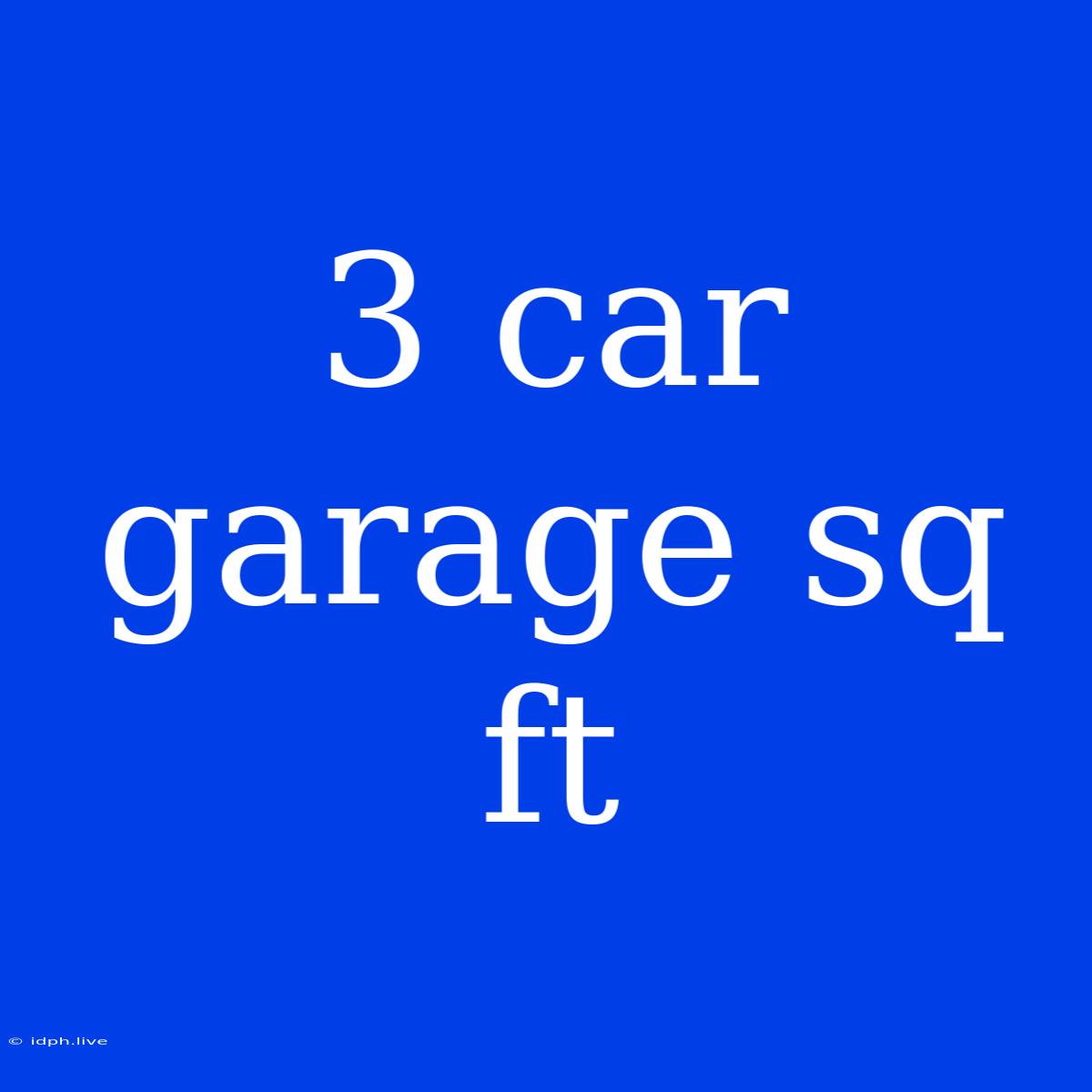3 Car Garage: Space and Size Considerations
A 3-car garage is a coveted feature for many homeowners, providing ample storage space for vehicles, tools, and recreational equipment. However, the square footage of a 3-car garage can vary significantly, impacting its functionality and overall cost. This article explores the typical square footage of a 3-car garage and provides insights into different sizes to help you determine the best fit for your needs.
Standard 3-Car Garage Square Footage:
A standard 3-car garage typically measures around 600 square feet. This size provides sufficient space for parking three standard-sized vehicles, leaving some room for storage. Here's a breakdown of common dimensions:
- Width: 20 feet
- Length: 30 feet
Important Note: This is just a general guideline. Garage sizes can vary based on local building codes, architectural designs, and personal preferences.
Factors Affecting 3-Car Garage Size:
Here are a few factors that can affect the square footage of a 3-car garage:
- Vehicle Size: If you own larger vehicles like trucks, SUVs, or vans, you may need a wider garage.
- Storage Needs: If you require significant storage space, you may consider a larger garage with extra width or length.
- Additional Features: Adding features like a workshop area, a separate storage room, or a built-in workbench will require more square footage.
- Local Building Codes: Local building codes may dictate minimum garage size requirements.
Benefits of a Larger 3-Car Garage:
A larger 3-car garage offers numerous advantages:
- More Storage Space: Ample space for storing tools, sporting equipment, seasonal items, and more.
- Improved Vehicle Access: Easier maneuvering of vehicles, especially for larger models.
- Greater Flexibility: More space for workshop areas, hobby rooms, or home offices.
- Enhanced Resale Value: A larger garage can increase a home's appeal and value.
Considerations for a Smaller 3-Car Garage:
- Limited Storage: Less space for storing items, potentially requiring more creative storage solutions.
- Tight Fit for Larger Vehicles: May not be ideal for parking larger vehicles or maneuvering them easily.
- Limited Flexibility: Less room for additional features or expanding storage needs in the future.
Choosing the Right Size:
- Assess your needs: Determine how much space you require for vehicles and storage.
- Consider your budget: Larger garages generally come with higher construction costs.
- Think long-term: Anticipate future needs and plan for potential expansion.
Remember, a well-designed 3-car garage can be a valuable asset to your home, offering convenience, storage, and flexibility. Carefully consider your needs and budget to ensure you choose a size that best suits your requirements.

